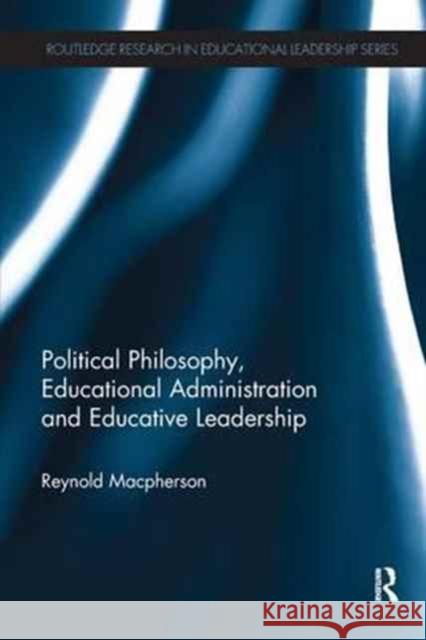Political Philosophy, Educational Administration and Educative Leadership » książka
Political Philosophy, Educational Administration and Educative Leadership
ISBN-13: 9781138291010 / Angielski / Miękka / 2016 / 238 str.
Political Philosophy, Educational Administration and Educative Leadership
ISBN-13: 9781138291010 / Angielski / Miękka / 2016 / 238 str.
(netto: 245,66 VAT: 5%)
Najniższa cena z 30 dni: 241,85
ok. 16-18 dni roboczych.
Darmowa dostawa!
In this book Reynold Macpherson initiates a politically-critical theory of educative leadership as a fresh line of inquiry in the practice, research and theory of educational administration and educational leadership. Divided into four parts, the book introduces the sub-discipline of political philosophy to the field of educational administration, management and leadership. It does this by clarifying the knowledge domain of each and identifying how four political ideologies, specifically pragmatism, communitarianism, communicative rationalism and egalitarian liberalism, have primarily informed and surreptitiously provided contestable justifications for power in the development of practice, research and theory in the field of study. The book goes on to offer three case studies illustrating how political philosophy can be used to interpret how people become leaders and administrators of educational institutions and systems. Additional case studies then demonstrate how crises in governance in educational institutions and systems can be analyzed and improvements made using the tools of political philosophy. The final part uses the sub-discipline to critique the author s decades of research into educative leadership, and concludes the book by both establishing the relativity of politically-critical critique and the ideology it favours; neo-pragmatism. Political Philosophy, Educational Administration and Educative Leadership will provide practitioners, researchers and theorists in educational administration, management and leadership with a deeper appreciation of power by formally introducing them to the assumptions, limits and tools of political philosophy."











